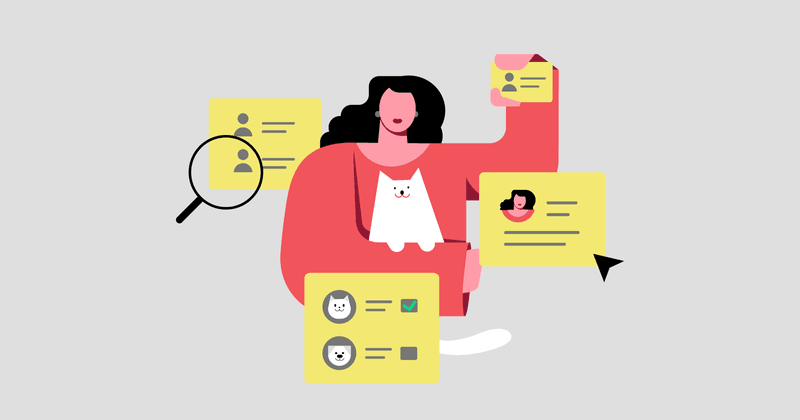How we hire at RevenueCat
Prepare to join our mission to help developers make more money.

RevenueCat has an incredibly ambitious goal: to build a public company by the end of the decade. To do so, we need a team that is capable of hitting incredibly ambitious goals.
Our interview process is designed to gather compelling evidence about candidates’ ability to exceed role expectations and contribute to our company’s mission of helping developers make more money.
As we evaluate your skills, we also look for alignment with our core values throughout the interviews:
- Customer Obsession
- Always Be Shipping
- Own It
- Balance
Generally, our interview process for all roles goes through the following stages:
- Application
- Hiring manager interview
- First interview ( for engineering roles – a coding interview)
- Panel interviews (a systems design interview for engineering roles and a task-based presentation for non-engineers; culture interview; founder interview)
- References
- Offer (+ onboarding)
The purpose of this blog is to give prospective cats a better idea of what’s involved in each stage and to give you the best chance of success.
Application
You’ll kick things off with our job application. You’ll share your personal details and CV, of course, but we also want this to be an opportunity to get to know you better.
Why do you want to work at RevenueCat?
We don’t expect a long, intricate response. We’d like candidates to take the time to understand the developer pain we solve, the customers we serve, and the opportunity we have to do something special as a company.
What is an example of a non-computer system you’ve hacked to your advantage?
This is an homage to one of Y Combinator’s application questions (we were part of the S18 class) . We’d recommend a short anecdote on how you were able to creatively solve a problem (large or small).
These questions are optional, but they are an opportunity to stand out from other candidates.
Hiring manager interview
Assuming your experience is a match, the hiring manager for the role will set up 30-45 minutes to chat.
You can expect them to dig into general qualifications, role fit, values alignment, and answer questions you have about the role and RevenueCat.
There will be some role variability with these questions but this is where you’ll be able to talk about your career motivations and accomplishments. Have you shipped a project that you’re really proud of? Did you knock your quota out of the park landing a whale of a deal? This is the time to relish in your accolades.
There isn’t anything specific to prepare for, but anecdotal evidence is what we generally evaluate (we’d research the STAR method for this specifically).
First interview
Not every role will have this stage, but technical roles will typically start with a coding interview.
The assessment will vary by role, but we will always evaluate for:
- Technical communication
- Collaboration
- Product-oriented thinking
- Clean, readable code
- Understanding of algorithms and data structures
Coding evaluations will always be performed live. Live coding provides an opportunity to assess a candidate’s pragmatism, collaboration during real-time interactions, and problem-solving abilities. This is critical for us despite the asynchronous nature of our company.
We base coding problems on something you would encounter in your day to day at RevenueCat, but doesn’t require previous familiarity with our product or domain. We don’t ask for obscure algorithms or data structures that would be rarely used in the role.
Panel round
These are the equivalent of onsite interviews, except we’re on the internet. We can break these up however you like, and they usually don’t have to be sequential.
Some of the common interviews (depending on role) are:
Values interview (all roles)
This is an assessment of values alignment and behavioral attributes. This is important to us, as this is a strong performance predictor.
While there isn’t anything specific to prepare for, success in this interview requires self-reflection and honesty.
Presentation (non-engineering)
We generally have presentations for client-facing roles (though that’s not exclusive). You should expect to field questions from the team for the last 15 minutes of the presentation.
We evaluate:
- Communication skills and articulation of complex concepts
- Self-awareness and engagement
- Content substance and understanding
- Time-management
- Adaptability
Systems Design (engineering)
This isn’t a coding interview. Instead, the interviewer will discuss how to build a solution based on your experience. There are no right or wrong answers, this is more a discussion and exploration.
We’re looking for:
- Designing a simple and robust architecture
- Ability to move up and down different levels of abstraction
- Clear articulation of your design
- Adaptability to changing requirements and trade-offs
- Collaboration and communication
Founder interview (all roles)
Assuming the previous panel went well, you’ll either speak with CEO Jacob Eiting or CTO Miguel Carranza as the interview capstone.
Companies are led by example, so we understand how important it is to meet the founders. So if you have a “why the name RevenueCat?” or “what do you love about computers?” question, this is the time to ask.
Jacob and Miguel are the operating founders of RevenueCat. Our company, the values, our vision, and our operating principles originated from these two. They’re passionate about our company’s success and serving developers, plus they never turn down an opportunity to talk to someone who shares the same passions.
References
Assuming we are a mutual match, we conduct reference checks to confirm what we learned about you throughout the interview process.
Offer
We are a remote company that strongly believes in equal pay for equal work regardless of geographical location. We benchmark salary bands based on similar stage companies located in San Francisco. We are transparent about our salary information in all of our job descriptions (if you’re not sure, ask!). Since we value this level of transparency in our hiring process we do not negotiate job offers in an effort to preserve fairness and internal equity.
You can find more on our comp philosophy here.
Onboarding
Our goal is to have every team member deeply understand our product, help our customers, and learn to live our values as soon as possible. That’s why we implemented RevNewCat University.
This is our onboarding program where you will have the opportunity to learn about each area of our business, walk in our customers’ shoes, live out our values, and quickly contribute to our mission.
More details will of course be provided assuming you join us on our mission to help developers make more money!
You might also like
- Blog post
The State of Subscription Apps 2025: The year AI ate everything
AI, hybrid monetization, and retention are reshaping subscription apps. Here’s what the data says.
- Blog post
Join our Tokyo Spring 2025 Tour: A cultural & business exchange for app growth professionals
Join our Tokyo Spring 2025 Tour!
- Blog post
Hack Week 2025: 5 standout projects (and more!) from a week of innovation
A week of fast shipping, creative problem-solving, and projects that might just make it to production.

